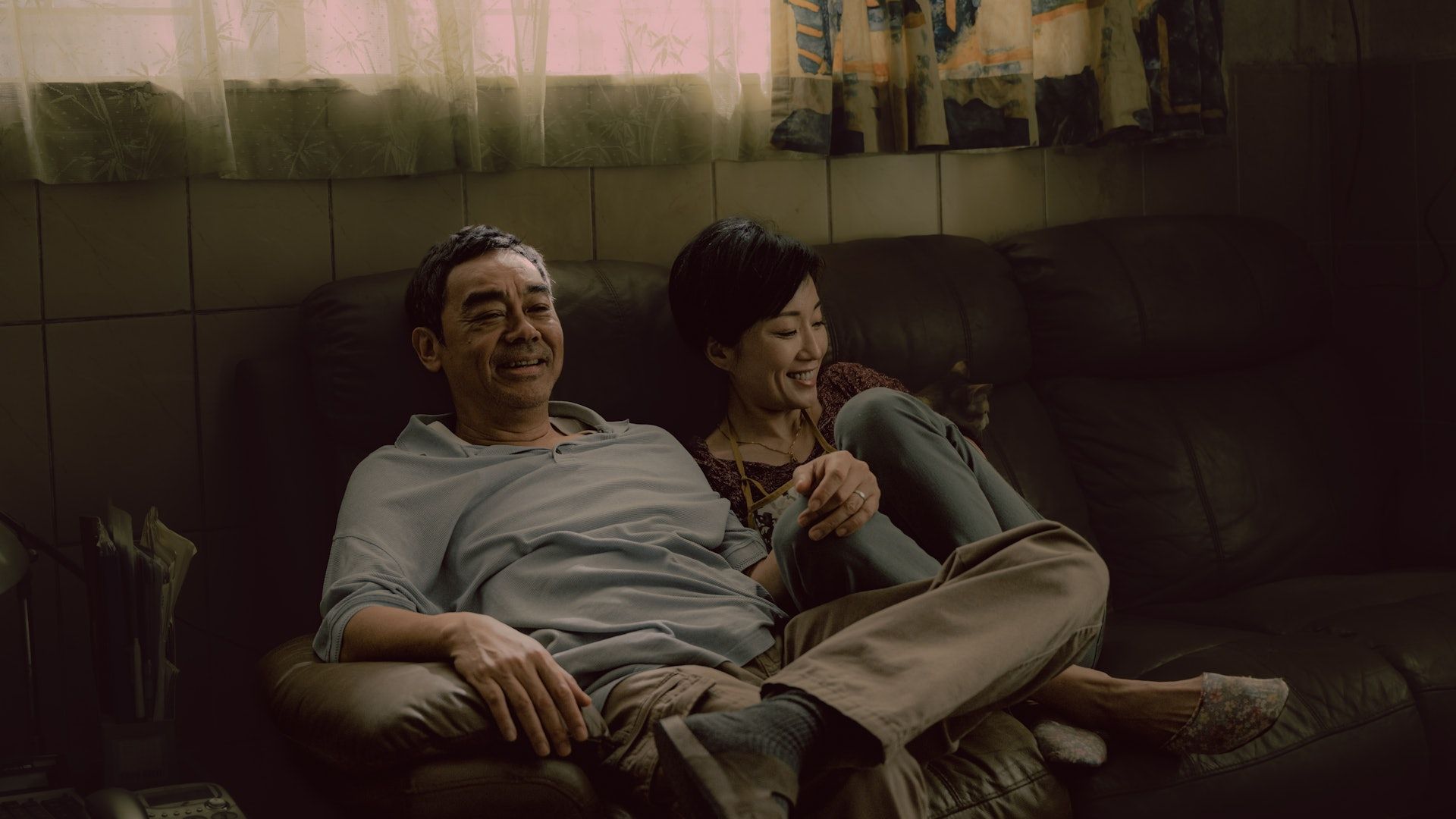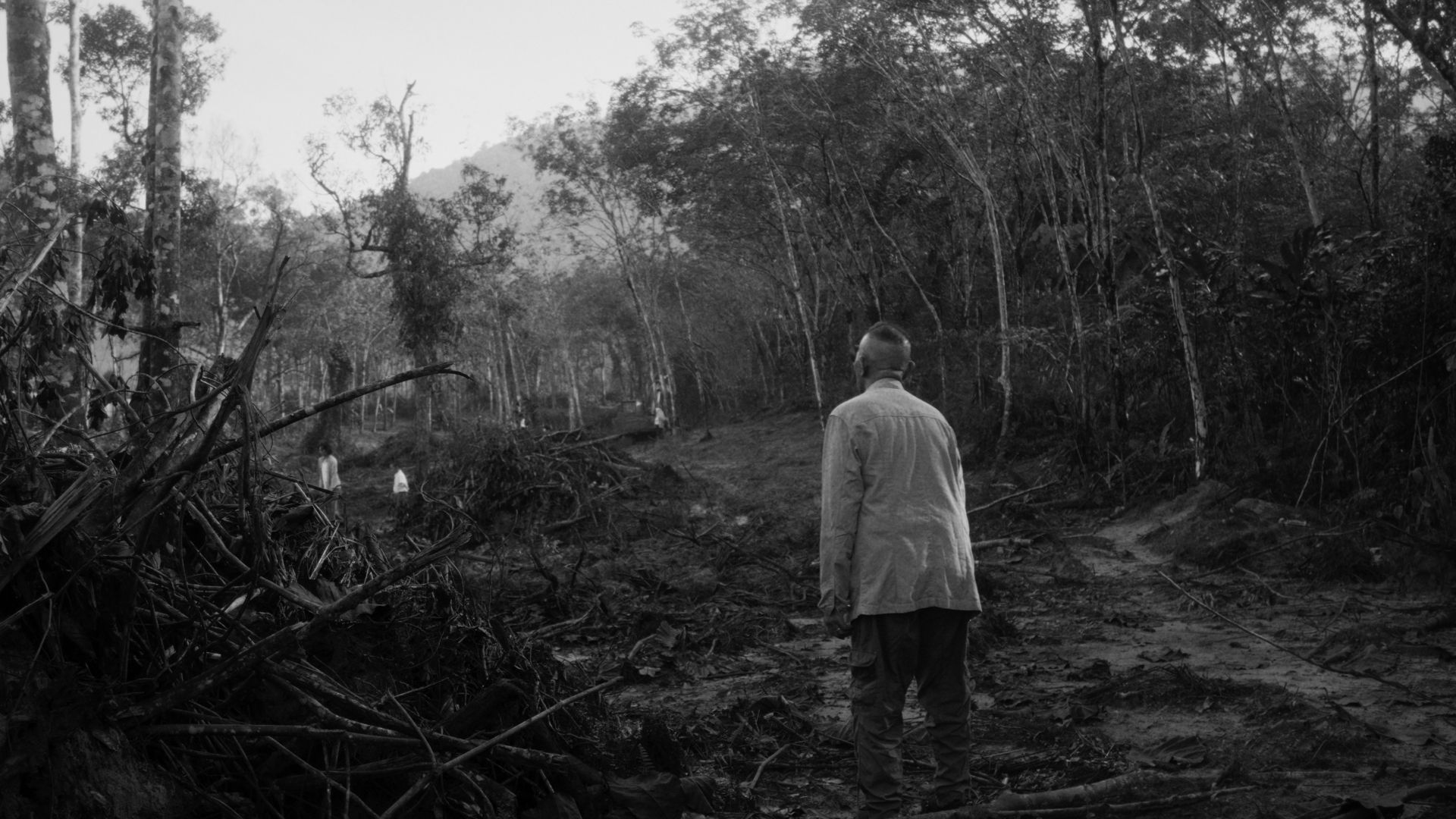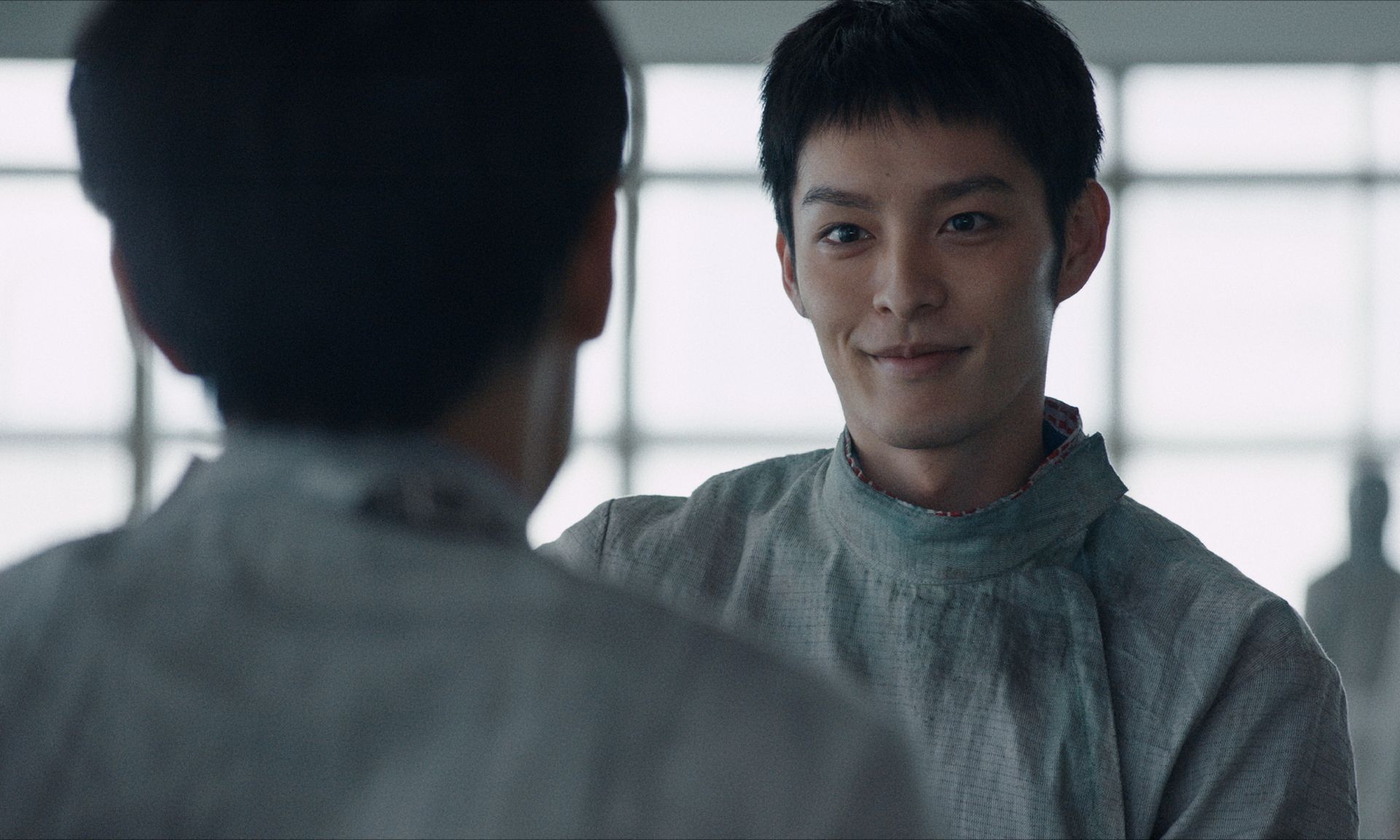Film Review #32: INFERNAL AFFAIRS
Film Review #32: INFERNAL AFFAIRS
*This film review may contain plot spoilers, reader discretion is advised.*
In the pantheon of Hong Kong cinema, there are films that will always be regarded as classics and landmarks, films whose legacies are stamped so deeply and assuredly into Hong Kong’s cultural history that few would ever debate otherwise. These are the films that hold Hong Kong’s identity within its ethos, from the blitzing melancholy of Chungking Express (1994) to the localized humour and sentimentality of Shaolin Soccer (2001). They make one believe that they simply could not have been made anywhere else. Infernal Affairs, a 2002 crime thriller directed by Andrew Lau and Alan Mak, and starring Andy Lau and Tony Leung Chui-Wai, stands shoulder to shoulder amongst these mentioned titles, one of the last great bookmarks in a rich cinematic history.
To explain the plot of Infernal Affairs almost feels counter-productive, such is its complex game of cat-and-mouse. Andy Lau and Tony Leung play Lau Kin-Ming and Chan Wing-yan, a triad member and police officer respectively, who have been tasked to go undercover long-term in the other’s territory. Through this, internal and external conflicts begin to break down these two men as they are forced to consider the lives they have lived. I had already seen the movie prior to discovering that it was being rereleased in theaters for its 20th anniversary along with its sequels, but it had been a few years and I was not going to let the chance to watch a classic Hong Kong film in cinemas slip by me. The film has retained this almost reverent status amongst Asian cinema fans, so me and some friends eagerly bought tickets and went in expecting to enjoy ourselves. When we came back out, we mutually agreed that its reverence was well-earned, as we seemed to have had what could only be described as a religious experience.
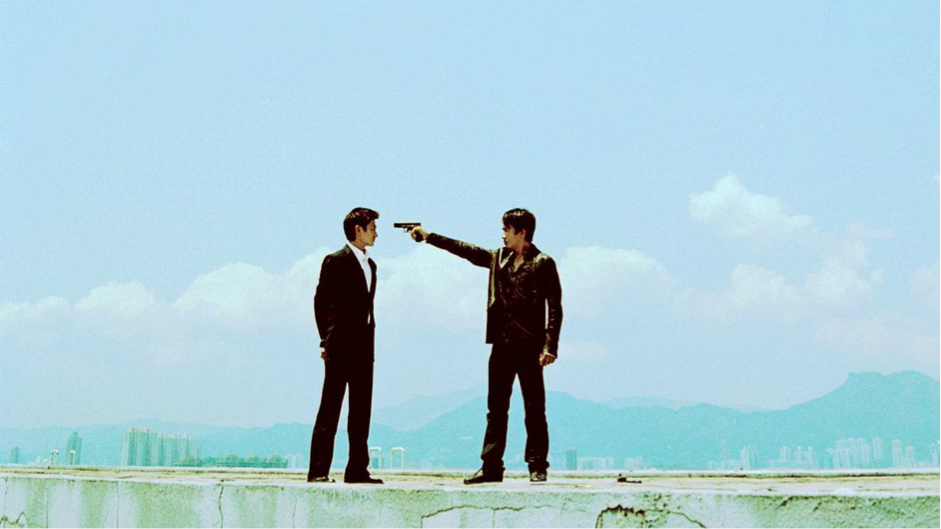
Film still from Infernal Affairs
That was perhaps hyperbolic, but there is something to be said about the film’s presentation in that context. Infernal Affairs’ overall methodology seemed to have been to emphasize the intended emotion of a scene before anything else, eschewing a more nuanced and well-balanced sense of pacing for scene-to-scene impact. In particular, most of the scenes that revolve around Lau and Chan’s love interests feel almost out of place, as though they are only there to fulfil a necessary “character quota”, balancing that off by frontloading as much schmaltz as possible during their scenes. This is not something particularly unique, as this is a style that was quite prevalent during the golden age of Hong Kong cinema, but to those that might not be used to it, it could potentially feel a bit jarring or slap-dash.
That is by far the weakest part of the film, the only element that doesn’t quite work, because the rest of Infernal Affairs can only be considered a masterpiece in Hong Kong filmmaking. The emotions expressed come roaring at the audience right from the get-go, with an opening credits sequence that promises a grandiose tragedy that will be nothing short of operatic. The film continues and holds up that aura throughout, with each plot reveal and character development only further building on this tension until it comes to its inevitable and emotionally devastating ending. There is plenty of valid criticism to be made for its “in your face” presentation, with its flashy editing and pinpoint needle drops to squeeze every ounce of emotion possible out of a moment, but in Infernal Affairs’ case, it is undeniably effective.
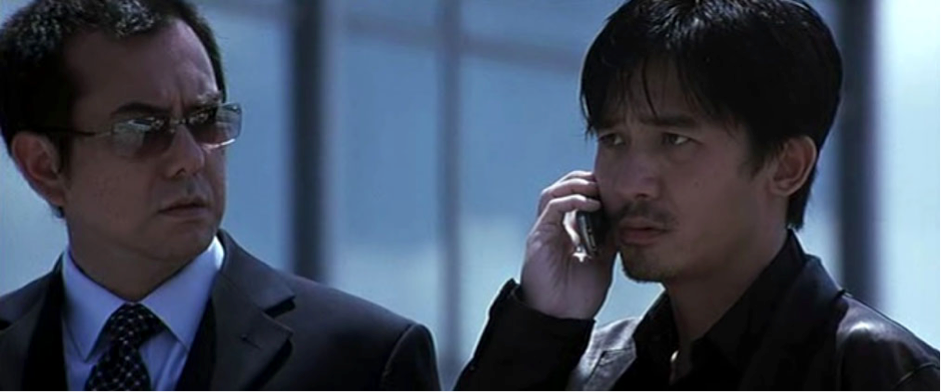
Film still from Infernal Affairs
Much, if not the main reason for this, is Andy Lau and Tony Leung’s performances as the conflicted main duo. It is no wonder that they are synonymous with this movie; the two are able to simultaneously embody these tragic characters with such sincere humanity, while also exuding this highly charismatic chemistry with each other and the supporting cast, it almost makes one forget that they only truly interact with each other for only a couple of scenes. Speaking of the supporting cast, Infernal Affairs backs up Andy and Tony with some all-time legends, with Eric Tsang and Anthony Wong in particular standing in for Andy and Tony’s moral compasses. It is simply a joy to see all these great actors on screen, in a film that intends to use their abilities as dramatically as possible.
20 years on, Infernal Affairs has held up remarkably well, and while I already loved it, watching it in theaters really showed me why it became such a sensation during its initial release. Its pacing, intent on putting the audience through an emotional rollercoaster, arguably reaches its fullest potential on the big screen, with each dramatic moment and sensation heightened. What separates it from films of a similar ilk, however, and truly raises it to a higher standard, is the underlying pathos of Andy and Tony’s characters, giving the film an emotional depth that perhaps excels in spite of its rapid-paced editing. I recommend Infernal Affairs without hesitation to anyone who wants to get into Hong Kong cinema, as I personally do believe it to be a solid benchmark that represented a film culture at a particular point in time, as well as being just really good.
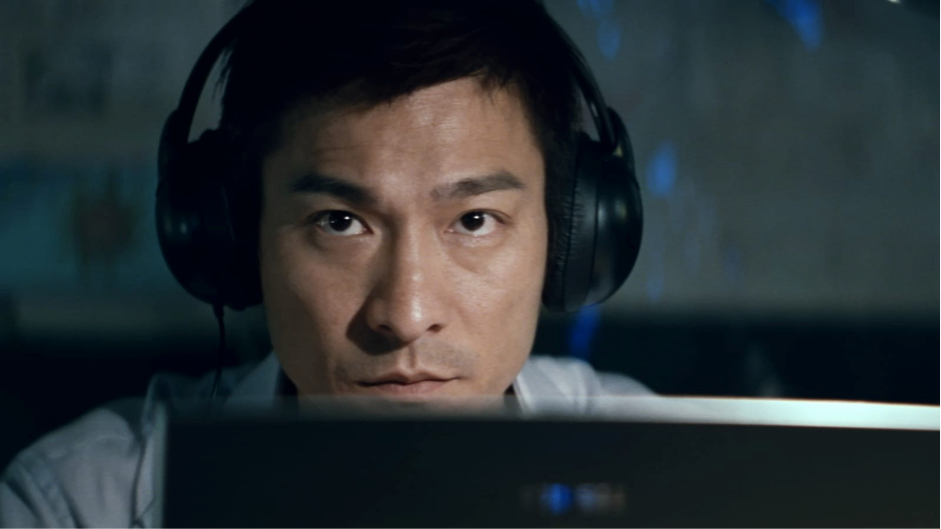
Film still from Infernal Affairs
——————————————————————————-
This review is published as part of *SCAPE’s Film Critics Lab: A Writing Mentorship Programme, organized by The Filmic Eye with support from Singapore Film Society and Sinema.
About the Author: Wei Li Heng is an avid lover of uncovering and writing about obscure and underseen Asian cinema. He hopes to discover local cinematic gems and share them to a wider audience.

